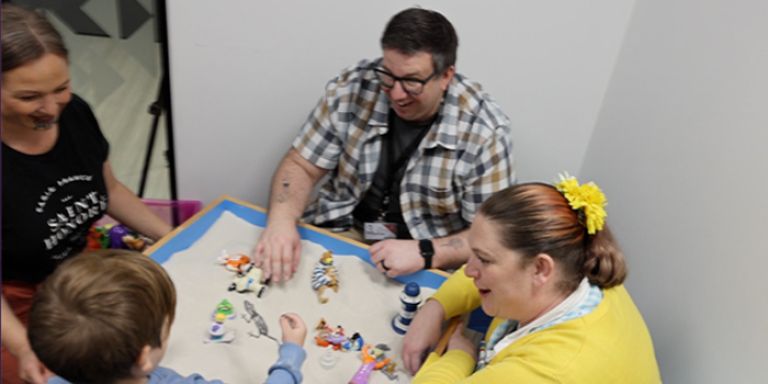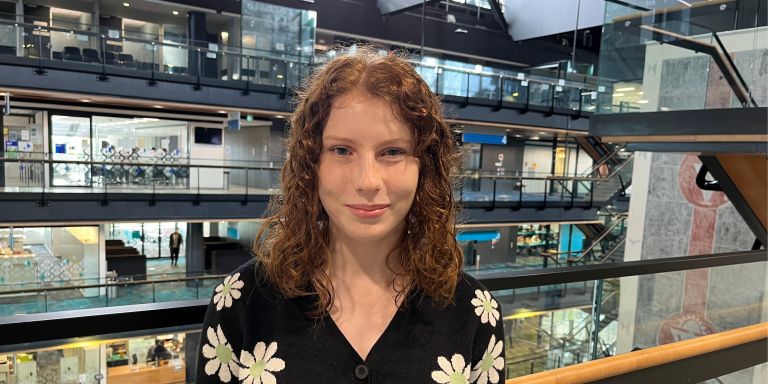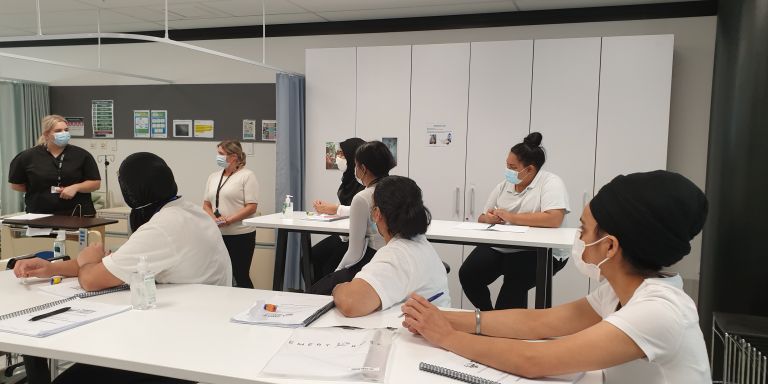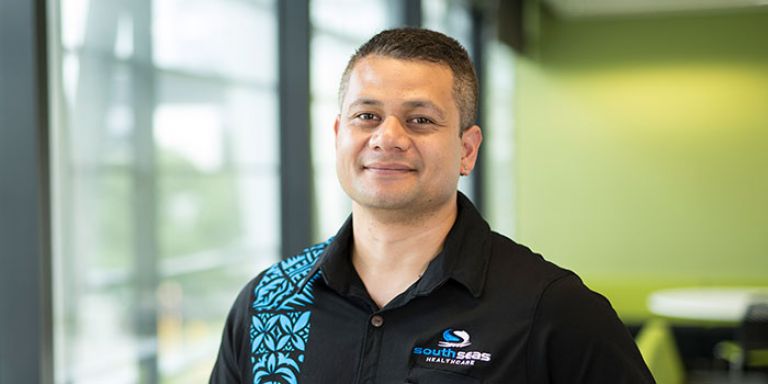Get a career in an essential industry and make a real difference to people’s health and wellbeing.
Study one of our recognised qualifications in healthcare and you’ll open the door to a rewarding career helping others make positive changes.
You’ll learn how to care for people, families and entire communities. Whether you want to become a health support worker, mental health and addiction support worker or counsellor, we can help you get there.
Our programmes will give you the skills and confidence to change lives.
Programmes
- New Zealand Certificate in Study and Employment Pathways (Level 3) Nursing and Health Studies
- Less than six months
- MIT Manukau
- February, July
- New Zealand Certificate in Study and Employment Pathways (Level 3) Social Work
- Less than six months
- MIT Ōtara
- February, July
- New Zealand Certificate in Study and Employment Pathways (Level 4) Education and Social Sciences
- Less than six months
- MIT Ōtara
- February, July
- New Zealand Certificate in Study and Employment Pathways (Level 4) Nursing Studies
- Less than six months
- MIT Manukau
- February, July
- New Zealand Certificate in Health and Wellbeing (Social and Community Services) (Level 4) with strand in Mental Health and Addiction Support
- One year
- MIT Manukau
- February, July
- Bachelor of Applied Counselling (Level 7)
- More than one year
- MIT Ōtara, MIT Manukau, Online
- February, July
See why more people choose Health and Counselling at MIT

“I’ve not struck this level of openness in any other training institute.”

“I identified a need when I went looking for support for my own family. At the time I was looking for a direction and it struck me that I can do that, and I can do that well!
The flexibility is the best part for me. I wanted to study somewhere where I had the freedom to study when and where it suited me and the flexibility to work around my busy family life. MIT works brilliantly into my lifestyle as a busy mother of 3 kids, all with additional needs. Classes are always recorded, which means if I cannot attend them, I do not miss out. And lecturers are always contactable for questions or support.
I have a lot of chronic health issues that I have had to work around and figure out a way to study with. MIT has been brilliant in helping me to navigate this, doing everything they can to help.
I really enjoy the focus on diversity. It makes sense in a society that is multicultural and extremely diverse to educate students who will be working with these people about the nature of their diversity. I’ve not struck this level of openness in any other training institute.
I started my placement this semester and it was an amazing opportunity to transfer the incredible skills I have learned from my tutors into the real world and get a feel for what the industry looks like from the ground. I believe these placements are incredibly important to create well-rounded and prepared counsellors post-graduation.
This is a high-need career in New Zealand. Only good things can come of having more excellently trained counsellors, so if you are interested in this as a career, I would urge you to really consider it – not only for yourself but for the greater good.
When I finish studying I want to work counselling young gender-diverse kids (12 and under) and their families.”
Kerry-Lee Bray
MIT student

MIT is the quality choice. Study health or counselling and graduate work-ready.

“MIT has been fantastic throughout my journey, the lecturers have been amazing.”

“I work at Ngongotaha Pharmacy in Rotorua and have been a Level 5 Technician since 2005. I saw an advertisement for the Level 6 Specialist Technician course one day in my lunch break as I was flicking through a contact magazine. I was feeling at a dead end within my position at the time, feeling like there was nowhere to go to from here. My employer was very supportive, so I decided to enrol in the course because I was eager to advance my qualification, not really knowing where it may lead or what doors may open.
MIT has been fantastic throughout my journey. I have met so many people, the lecturers have been amazing and very supportive and it has been great meeting the other girls in my class. We have become good friends and enjoyed staying together when we attended block courses.
I have learnt so much throughout this course, not only in direct relation to my career but also general life skills for example time management, problem solving and computer skills. It has opened up a whole new world for me and I feel so much more competent and confident with the knowledge I have gained.
Roles are expanding within pharmacy and there are now roles within the dispensary that don’t necessarily need to be filled by a pharmacist, opening up a lot more opportunity for technicians. I have recently taken on a management role in my pharmacy and hope to achieve pharmacy ownership in the near future.
I have found the whole experience very enjoyable, and manageable. I work full-time and have three children, so it was essential that I could work around these commitments. I would absolutely recommend this course to anyone wanting to further their career. You never know what doors may open for you.”
Stephanie McGaffin
MIT graduate

“Together, let us forge a healthier and more equitable Aotearoa.”

“I am honoured to serve as a Ministerial Adviser at Te Whatu Ora Health New Zealand, and I credit my journey to the transformative power of studying public health and health promotion at MIT.
Public health and health promotion are important fields that focus on improving and protecting the health of populations. These areas of study aim to prevent diseases, promote healthy behaviours, and address various health challenges on a broader scale.
Embracing the principles of public health, I am deeply grateful for the opportunity to contribute to the New Zealand health sector. Through my studies, I have developed a keen understanding of health determinants and have actively worked towards addressing health inequalities faced by diverse communities, including Māori and Pasifika.
MIT offers an online study program that effectively enabled me to pursue full-time employment while simultaneously engaging in academic pursuits. The online format has proven to be highly conducive to my circumstances, allowing me to seamlessly integrate work and study. I found the teaching process to be exceptional, characterized by high-quality instruction and an effective learning environment.
This program provided me with the opportunity to engage in comprehensive learning while managing other commitments. I have also leveraged my learnings to create my own impactful health promotion project, which showcased my ability to innovate and apply evidence-based approaches.
The unwavering support I received from the Manukau campus, including the invaluable guidance of teachers, a dedicated Pasifika support person, and the nurturing environment of the whānau has played a pivotal role in my success.
The qualification from MIT not only bolstered my professional credentials but also instilled in me the confidence and expertise necessary to navigate the complexities of health governance and provide valuable advice to decision-makers in the ministry.
Use your education to advocate for equitable access to healthcare and work towards reducing disparities in health outcomes among different population groups. As I continue to tread this path, my commitment remains unwavering—to make a positive difference in the lives of individuals and communities. I express heartfelt gratitude to MIT for providing me with the platform to realize my aspirations.
Together, let us forge a healthier and more equitable Aotearoa.”
Obaid Durrani
MIT graduate

“The tutors know our work commitments and give support.”

“I cautiously weighed up the benefits of completing this course [Pharmacy] before registering due to the impact studying has on an already busy schedule as a working mum. Study consumes me due to my desire to get the most out of the opportunity. Many times during the course I doubted my ability to meet the assessment requirements.
The course is structured so that the learning is staged to complement both the work environment and the specialised topics in the second year of study. The choice to complete the course over a two to four-year period allows each learner the ability to learn at their own pace.
The tutors know our work commitments and give support, direction and positive feedback to keep motivation and vision in seeing this course to its completion.
The result for me has deepened my knowledge on many aspects of pharmacy, especially communication, and recognising individuality in our team. Prior to this course I was already the Pharmacy Manager and felt I did a good job; reflecting on my performance since learning from the Level 6 material I now do a better job in managing the team’s strengths and weaknesses, culture, and recognising learning needs. Personally I have learnt the value of the “why” question.
I am unsure how long it will take for the course to be recognised within the profession, but I am confident the pharmacies who have a Level 6 technician will appreciate the knowledge we have, and the ability to apply this knowledge in our workplace.
I would recommend this course to technicians who want to extend themselves professionally to work at the top of their scope, and personally applying the management, interpersonal and communication skills to all facets of life.”
Donna Skeen
MIT graduate

“Take a holistic approach to life.”

“The difference that I can make through counselling is to be able to look at things with a holistic approach and not just a clinical view.”
Mayana Daly-Prasad
MIT student

“It is well structured and covers relevant information.”

“As a pharmacy owner who works in their own business, there are some important jobs in the dispensary that are hard to allocate to other staff as they lack training in these areas. Examples are the development and maintenance of SOPs, staff management and workflow. Pharmacists tend to learn these skills on an ad-hoc basis, however, they are roles that do not require a pharmacist to fill, and are perfect for a technician to step into.
This course has been amazing at training Stephanie in these areas, and because her course covered all the legal and non-legal requirements and their implementation and also required my input, we (MIT, Stephanie and myself) developed her current knowledge to be ideal for our pharmacy, and therefore she easily fulfilled my expectations of her new role. She has moved from being a technician to stepping into a management role, and I look forward to where this leads us in the future.
I would highly recommend this course to technicians who are wanting to step into dispensary or pharmacy management, it is well structured and covers relevant information, and also allows the technician to have choices about which areas they would like to further their knowledge in.”
Kirsty Croucher
Pharmacy owner

“If you’re considering it – just go for it.”

“Before studying I was a secondary school student at Rosehill College. I had heard a lot about MIT, and everyone seemed so happy and excited about studying there. After I had enrolled, I went to the orientation which was very informative, and they talked a lot about the support they provide which made me feel relieved to start studying at MIT.
I really enjoy how friendly the people and staff are. The support I get at MIT is really unique and there are multiple different support people you can ask for help from. The work can sometimes be challenging but to overcome this I just email my lecturer questions or anything I need help with, and they make it really clear to understand. I manage to fit in at least an hour of studying a day to keep up with my course so that I can also make time for myself and my family.
Once I finish my programme in health and wellbeing I’m planning to pursue my goal of becoming a psychologist. I’ve had a passion for the health field ever since I was a child. I wanted to become a doctor but as I grew older, I decided I wanted to become a psychologist and I figured that this mental health course would be the best one to help me get started.
If you’re considering it – just go for it. It doesn’t take long to apply, and the field is very informative and helpful and influences everyday life.”
Brooke Harper
MIT student

“I wanted to be working in a job that made a difference to peoples’ lives in a meaningful way.”

“I’ve chosen to study health and wellbeing at MIT as at this stage in my life I wanted to be working in a job that made a difference to peoples’ lives in a meaningful way. After some time to reflect and evaluate what was involved with a healthcare assistant role it felt like a good fit for me.
The programme is delivered at MIT Manukau and it’s a pretty cool campus with wonderful helpful staff. I really enjoy its familiar and family kind of atmosphere. All the students and staff have been so friendly and welcoming.
I really appreciate that as an older student coming into this course it was a little daunting at first, as I had left school at 15 without even school certificate as it was back in those days. So any kind of study was a bit of a learning curve.
I have had some amazingly kind peers in my class who have been kind enough to give me some guiding help with using various technology, tools and apps. MIT also has lots of help available for anyone needing to increase those skills.
My goal is to work in end of life care as a healthcare assistant or in an associated way. When I finish the course, I intend to work in a hospital for 6-12 months to get wide scope of experience and become effective as a HCA. Perhaps while I am working in this role another path might become clear for me in following my ultimate goal of palliative care.”
Duncan
MIT graduate

“Make a difference in your community.”

“If making a difference in your community is something you want to achieve then a career in health is a career for you. As a Samoan one of the core values I was taught growing up is tautua which means service. So serving our parents our families our elders and our community. That was one of the main reasons I decided I wanted to study health.”
Tino Tevaga
MIT graduate

“What I really appreciate about MIT is the work, life, study balance.”

“I chose counselling to support myself, to support my whanau, to support my iwi and my hapu and to support the community.
Prior to studying, I worked in the business sector as an education specialist, providing asset leasing solutions to the school sector. Alongside that, I was learning and practising Māori healing. I’m also a mentor for wāhine Māori. It was a natural progression for me to then step into counselling to add knowledge to my kete to tautoko Māori.
We have a mix of theory and practical and as an adult learner, I’ve had a long history of working in the sector. That’s a preferable way for me to learn.
I chose to come here because its diverse, diverse cultures. I’m very happy that we have indigenous lecturers. And the classes are supportive.
What I really appreciate about MIT is the work, life, and study balance. So, in addition to this, I work part-time as a kaiāwhina, a support worker. We can make it work around our lifestyles. The advice that I’d give to someone studying at MIT is to make sure it’s something that you love to do. That you absolutely love what you do, and you’re just going to have the time of your life. There will be challenges, but because it’s something that you love to do, you’ll have the courage to move through those challenges.
Kia kaha, kia māia, kia manawanui. Be strong, be brave, be steadfast.”
Romaiye Lowen
MIT student
See why more people choose Health and Counselling at MIT

“I’ve not struck this level of openness in any other training institute.”

“I identified a need when I went looking for support for my own family. At the time I was looking for a direction and it struck me that I can do that, and I can do that well!
The flexibility is the best part for me. I wanted to study somewhere where I had the freedom to study when and where it suited me and the flexibility to work around my busy family life. MIT works brilliantly into my lifestyle as a busy mother of 3 kids, all with additional needs. Classes are always recorded, which means if I cannot attend them, I do not miss out. And lecturers are always contactable for questions or support.
I have a lot of chronic health issues that I have had to work around and figure out a way to study with. MIT has been brilliant in helping me to navigate this, doing everything they can to help.
I really enjoy the focus on diversity. It makes sense in a society that is multicultural and extremely diverse to educate students who will be working with these people about the nature of their diversity. I’ve not struck this level of openness in any other training institute.
I started my placement this semester and it was an amazing opportunity to transfer the incredible skills I have learned from my tutors into the real world and get a feel for what the industry looks like from the ground. I believe these placements are incredibly important to create well-rounded and prepared counsellors post-graduation.
This is a high-need career in New Zealand. Only good things can come of having more excellently trained counsellors, so if you are interested in this as a career, I would urge you to really consider it – not only for yourself but for the greater good.
When I finish studying I want to work counselling young gender-diverse kids (12 and under) and their families.”
Kerry-Lee Bray
MIT student

MIT is the quality choice. Study health or counselling and graduate work-ready.

“MIT has been fantastic throughout my journey, the lecturers have been amazing.”

“I work at Ngongotaha Pharmacy in Rotorua and have been a Level 5 Technician since 2005. I saw an advertisement for the Level 6 Specialist Technician course one day in my lunch break as I was flicking through a contact magazine. I was feeling at a dead end within my position at the time, feeling like there was nowhere to go to from here. My employer was very supportive, so I decided to enrol in the course because I was eager to advance my qualification, not really knowing where it may lead or what doors may open.
MIT has been fantastic throughout my journey. I have met so many people, the lecturers have been amazing and very supportive and it has been great meeting the other girls in my class. We have become good friends and enjoyed staying together when we attended block courses.
I have learnt so much throughout this course, not only in direct relation to my career but also general life skills for example time management, problem solving and computer skills. It has opened up a whole new world for me and I feel so much more competent and confident with the knowledge I have gained.
Roles are expanding within pharmacy and there are now roles within the dispensary that don’t necessarily need to be filled by a pharmacist, opening up a lot more opportunity for technicians. I have recently taken on a management role in my pharmacy and hope to achieve pharmacy ownership in the near future.
I have found the whole experience very enjoyable, and manageable. I work full-time and have three children, so it was essential that I could work around these commitments. I would absolutely recommend this course to anyone wanting to further their career. You never know what doors may open for you.”
Stephanie McGaffin
MIT graduate

“Together, let us forge a healthier and more equitable Aotearoa.”

“I am honoured to serve as a Ministerial Adviser at Te Whatu Ora Health New Zealand, and I credit my journey to the transformative power of studying public health and health promotion at MIT.
Public health and health promotion are important fields that focus on improving and protecting the health of populations. These areas of study aim to prevent diseases, promote healthy behaviours, and address various health challenges on a broader scale.
Embracing the principles of public health, I am deeply grateful for the opportunity to contribute to the New Zealand health sector. Through my studies, I have developed a keen understanding of health determinants and have actively worked towards addressing health inequalities faced by diverse communities, including Māori and Pasifika.
MIT offers an online study program that effectively enabled me to pursue full-time employment while simultaneously engaging in academic pursuits. The online format has proven to be highly conducive to my circumstances, allowing me to seamlessly integrate work and study. I found the teaching process to be exceptional, characterized by high-quality instruction and an effective learning environment.
This program provided me with the opportunity to engage in comprehensive learning while managing other commitments. I have also leveraged my learnings to create my own impactful health promotion project, which showcased my ability to innovate and apply evidence-based approaches.
The unwavering support I received from the Manukau campus, including the invaluable guidance of teachers, a dedicated Pasifika support person, and the nurturing environment of the whānau has played a pivotal role in my success.
The qualification from MIT not only bolstered my professional credentials but also instilled in me the confidence and expertise necessary to navigate the complexities of health governance and provide valuable advice to decision-makers in the ministry.
Use your education to advocate for equitable access to healthcare and work towards reducing disparities in health outcomes among different population groups. As I continue to tread this path, my commitment remains unwavering—to make a positive difference in the lives of individuals and communities. I express heartfelt gratitude to MIT for providing me with the platform to realize my aspirations.
Together, let us forge a healthier and more equitable Aotearoa.”
Obaid Durrani
MIT graduate

“The tutors know our work commitments and give support.”

“I cautiously weighed up the benefits of completing this course [Pharmacy] before registering due to the impact studying has on an already busy schedule as a working mum. Study consumes me due to my desire to get the most out of the opportunity. Many times during the course I doubted my ability to meet the assessment requirements.
The course is structured so that the learning is staged to complement both the work environment and the specialised topics in the second year of study. The choice to complete the course over a two to four-year period allows each learner the ability to learn at their own pace.
The tutors know our work commitments and give support, direction and positive feedback to keep motivation and vision in seeing this course to its completion.
The result for me has deepened my knowledge on many aspects of pharmacy, especially communication, and recognising individuality in our team. Prior to this course I was already the Pharmacy Manager and felt I did a good job; reflecting on my performance since learning from the Level 6 material I now do a better job in managing the team’s strengths and weaknesses, culture, and recognising learning needs. Personally I have learnt the value of the “why” question.
I am unsure how long it will take for the course to be recognised within the profession, but I am confident the pharmacies who have a Level 6 technician will appreciate the knowledge we have, and the ability to apply this knowledge in our workplace.
I would recommend this course to technicians who want to extend themselves professionally to work at the top of their scope, and personally applying the management, interpersonal and communication skills to all facets of life.”
Donna Skeen
MIT graduate

“Take a holistic approach to life.”

“The difference that I can make through counselling is to be able to look at things with a holistic approach and not just a clinical view.”
Mayana Daly-Prasad
MIT student

“It is well structured and covers relevant information.”

“As a pharmacy owner who works in their own business, there are some important jobs in the dispensary that are hard to allocate to other staff as they lack training in these areas. Examples are the development and maintenance of SOPs, staff management and workflow. Pharmacists tend to learn these skills on an ad-hoc basis, however, they are roles that do not require a pharmacist to fill, and are perfect for a technician to step into.
This course has been amazing at training Stephanie in these areas, and because her course covered all the legal and non-legal requirements and their implementation and also required my input, we (MIT, Stephanie and myself) developed her current knowledge to be ideal for our pharmacy, and therefore she easily fulfilled my expectations of her new role. She has moved from being a technician to stepping into a management role, and I look forward to where this leads us in the future.
I would highly recommend this course to technicians who are wanting to step into dispensary or pharmacy management, it is well structured and covers relevant information, and also allows the technician to have choices about which areas they would like to further their knowledge in.”
Kirsty Croucher
Pharmacy owner

“If you’re considering it – just go for it.”

“Before studying I was a secondary school student at Rosehill College. I had heard a lot about MIT, and everyone seemed so happy and excited about studying there. After I had enrolled, I went to the orientation which was very informative, and they talked a lot about the support they provide which made me feel relieved to start studying at MIT.
I really enjoy how friendly the people and staff are. The support I get at MIT is really unique and there are multiple different support people you can ask for help from. The work can sometimes be challenging but to overcome this I just email my lecturer questions or anything I need help with, and they make it really clear to understand. I manage to fit in at least an hour of studying a day to keep up with my course so that I can also make time for myself and my family.
Once I finish my programme in health and wellbeing I’m planning to pursue my goal of becoming a psychologist. I’ve had a passion for the health field ever since I was a child. I wanted to become a doctor but as I grew older, I decided I wanted to become a psychologist and I figured that this mental health course would be the best one to help me get started.
If you’re considering it – just go for it. It doesn’t take long to apply, and the field is very informative and helpful and influences everyday life.”
Brooke Harper
MIT student

“I wanted to be working in a job that made a difference to peoples’ lives in a meaningful way.”

“I’ve chosen to study health and wellbeing at MIT as at this stage in my life I wanted to be working in a job that made a difference to peoples’ lives in a meaningful way. After some time to reflect and evaluate what was involved with a healthcare assistant role it felt like a good fit for me.
The programme is delivered at MIT Manukau and it’s a pretty cool campus with wonderful helpful staff. I really enjoy its familiar and family kind of atmosphere. All the students and staff have been so friendly and welcoming.
I really appreciate that as an older student coming into this course it was a little daunting at first, as I had left school at 15 without even school certificate as it was back in those days. So any kind of study was a bit of a learning curve.
I have had some amazingly kind peers in my class who have been kind enough to give me some guiding help with using various technology, tools and apps. MIT also has lots of help available for anyone needing to increase those skills.
My goal is to work in end of life care as a healthcare assistant or in an associated way. When I finish the course, I intend to work in a hospital for 6-12 months to get wide scope of experience and become effective as a HCA. Perhaps while I am working in this role another path might become clear for me in following my ultimate goal of palliative care.”
Duncan
MIT graduate

“Make a difference in your community.”

“If making a difference in your community is something you want to achieve then a career in health is a career for you. As a Samoan one of the core values I was taught growing up is tautua which means service. So serving our parents our families our elders and our community. That was one of the main reasons I decided I wanted to study health.”
Tino Tevaga
MIT graduate

“What I really appreciate about MIT is the work, life, study balance.”

“I chose counselling to support myself, to support my whanau, to support my iwi and my hapu and to support the community.
Prior to studying, I worked in the business sector as an education specialist, providing asset leasing solutions to the school sector. Alongside that, I was learning and practising Māori healing. I’m also a mentor for wāhine Māori. It was a natural progression for me to then step into counselling to add knowledge to my kete to tautoko Māori.
We have a mix of theory and practical and as an adult learner, I’ve had a long history of working in the sector. That’s a preferable way for me to learn.
I chose to come here because its diverse, diverse cultures. I’m very happy that we have indigenous lecturers. And the classes are supportive.
What I really appreciate about MIT is the work, life, and study balance. So, in addition to this, I work part-time as a kaiāwhina, a support worker. We can make it work around our lifestyles. The advice that I’d give to someone studying at MIT is to make sure it’s something that you love to do. That you absolutely love what you do, and you’re just going to have the time of your life. There will be challenges, but because it’s something that you love to do, you’ll have the courage to move through those challenges.
Kia kaha, kia māia, kia manawanui. Be strong, be brave, be steadfast.”
Romaiye Lowen
MIT student






